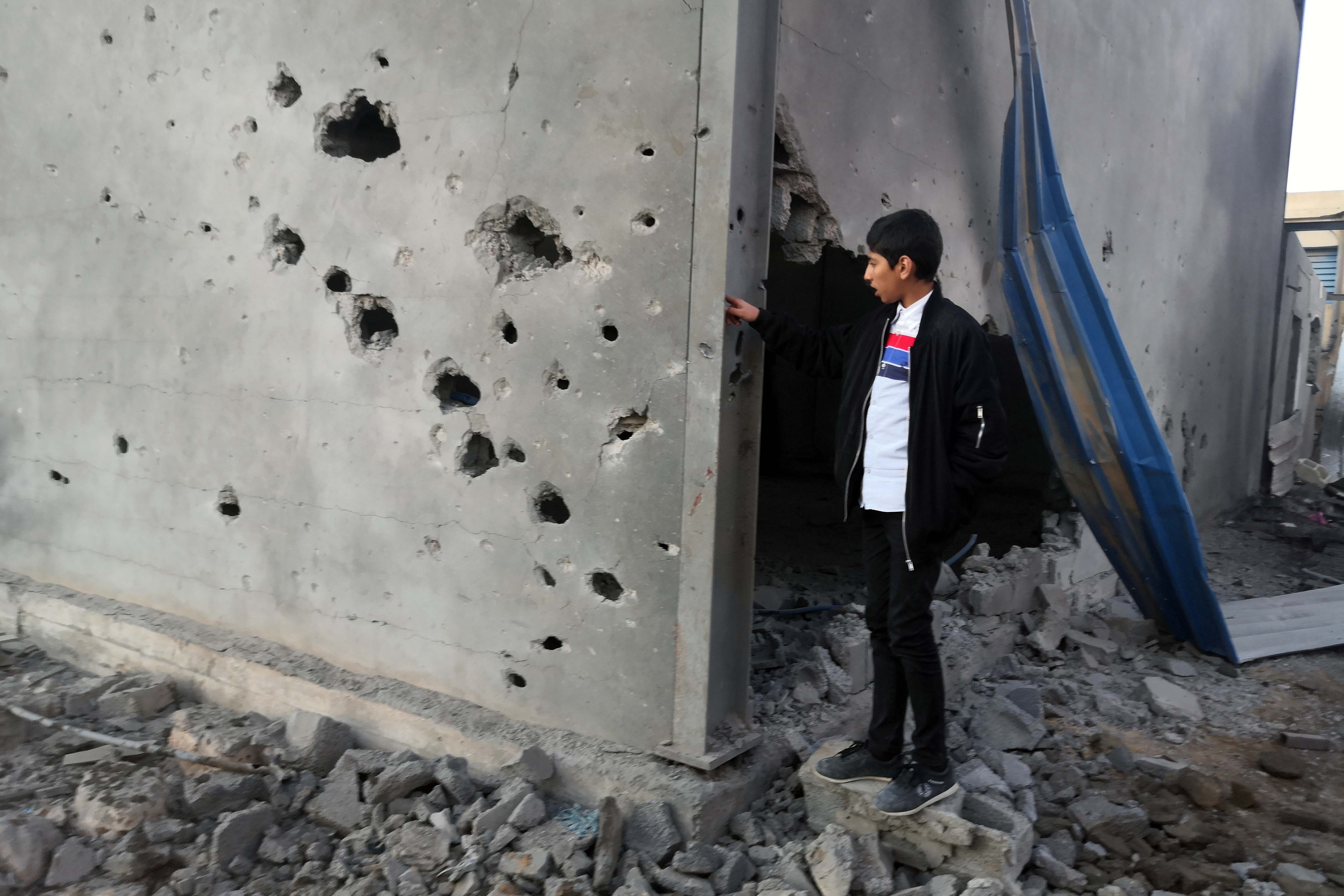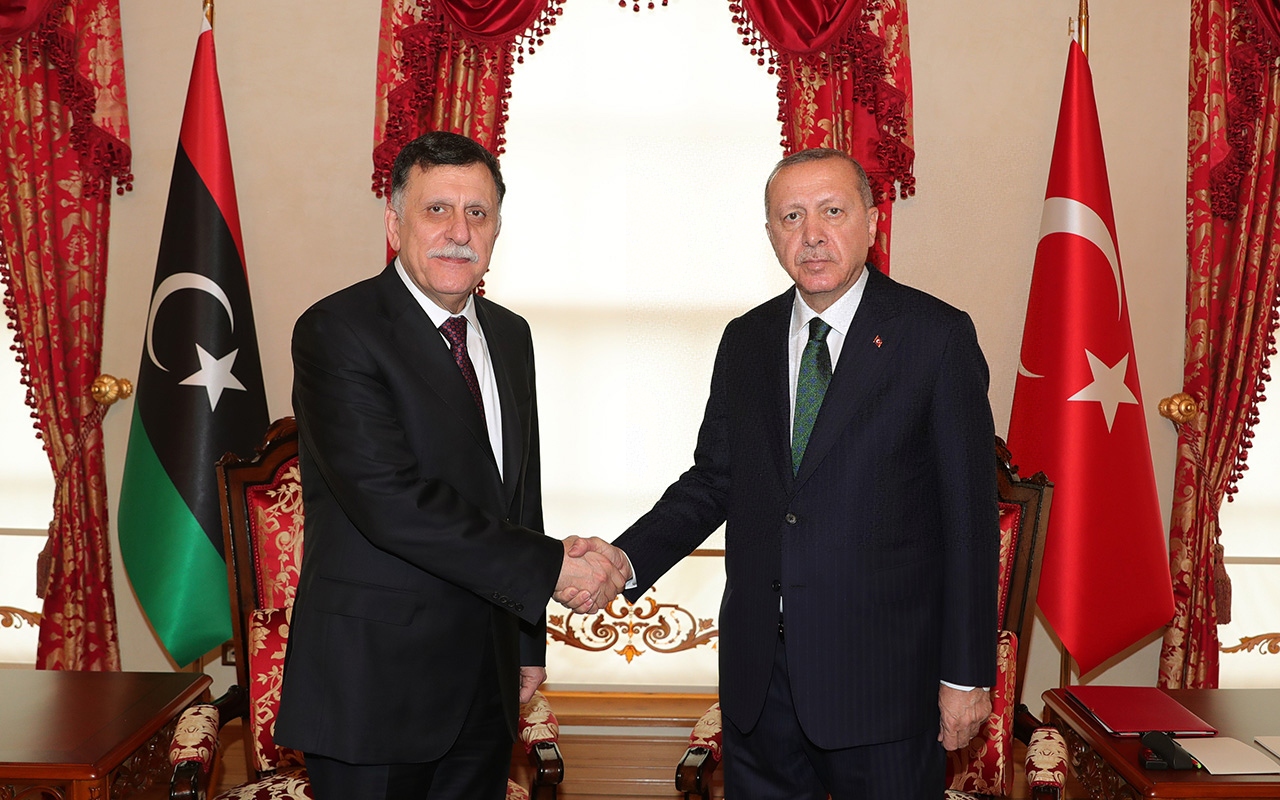Is there hope for peace in Libya?
- By George N. Tzogopoulos
 0 Comment(s)
0 Comment(s) Print
Print E-mail China.org.cn, January 22, 2020
E-mail China.org.cn, January 22, 2020

Nine years ago, the beginning of the Arab Spring raised hopes for better days in several Middle East and North African countries. The reality is much grimmer at the dawn of the new decade, however.
The continuation of the Libyan civil war adds to regional instability with no light at the end of the tunnel. A U.N.-recognized government under Prime Minister Fayez al-Sarraj fights against the so-called Libyan National Army led by General Khalifa Haftar.
Several international conferences – in Paris, Abu Dhabi and Palermo – sought to pave the way for peace in line with relevant U.N. resolutions with limited success.
A few days ago, the German-hosted Berlin conference on Libya gave another opportunity to world leaders to mediate and contribute to peace. Representatives from the five permanent members of the U.N. Security Council, from Algeria, Congo, Egypt, Italy, Turkey, the United Arab Emirates and also from the African Union, the European Union, the League of the Arab States and the U.N. travelled to the German capital to discuss a potential ceasefire with al-Sarraj and Haftar.
The Berlin conference took place almost immediately after a Moscow meeting where the two men had been invited to talk under the leadership of the Russian and Turkish governments.
The Berlin conference conclusions do not guarantee peace and stability in Libya but could establish a basis for a termination of all military movements and a ceasefire. An arms embargo, a return to the political process, reform of the security sector, economic and financial reform and respect for humanitarian laws were the main pillars of the agreement.
It is important to mention that al-Sarraj and Haftar agreed to nominate their representatives for the military 5+5 committee proposed by the U.N. Support Mission to Libya and declared they would refrain from further military deployments.
China expressed some optimism for a new beginning to address the Libyan crisis after the Berlin Conference. As a matter of principle, China respects the sovereignty, independence and territorial integrity of other countries and supports political solutions under the U.N. aegis. It will thus continue to work with the international community to positively contribute to restoring peace, stability and development in Libya.

German Chancellor Angela Merkel deserves credit for undertaking a promising diplomatic initiative in difficult times. She has endeavored for many years to score a foreign policy success perhaps missing from her impressive political record.
Germany's participation in the Minsk accords and its support for the Syrian constitutional committee are not being ignored, but a potential management of the Libyan crisis will be an unprecedented step.
The question is whether al-Sarraj and Haftar will make the required mutual compromises. In the German capital, they even avoided to talk face-to-face. Although the political process should be Libyan-led and owned, the decision of participants in Berlin to create an international follow-up committee to hold regular meetings gives a hope that the process can be facilitated.
The problem in the case of the Libyan quagmire is that a proxy-war is unfolding. Turkey, for example, did recently sign a memorandum of understanding with the U.N.-recognized government of Libya on military and security cooperation.

President Tayyip Erdogan has already sent troops to the country to fight against the Libyan National Army. In contrast, Egypt and the United Arab Emirates are backing Haftar because al Sarraj's consolidation of power damages their interests. Meanwhile, Qatar, that had been diplomatically isolated by Egypt, the United Arab Emirates and other Arab countries in 2017, also supports the prime minister.
Amid chaos, uncontrolled militias and terrorist organizations might gain ground to add further perplexities to the situation. Moreover, a power struggle between the U.S. and Russia is being played out. Whereas the former does not seem interested in brokering a deal, it is concerned about the fast-developing presence of the latter.
The Mediterranean is becoming a region of tensions, where several conflicts erupt and great power rivalries prevail. Several scholars are pondering whether Libya could turn out to be the next Syria. The Berlin Conference – despite the lack of efficient enforcement mechanisms – seems the only available solution to mitigate the consequences of another drama.
George N. Tzogopoulos is a columnist with China.org.cn. For more information please visit:
http://www.china.org.cn/opinion/GeorgeNTzogopoulos.htm
Opinion articles reflect the views of their authors, not necessarily those of China.org.cn.
If you would like to contribute, please contact us at opinion@china.org.cn.






Go to Forum >>0 Comment(s)